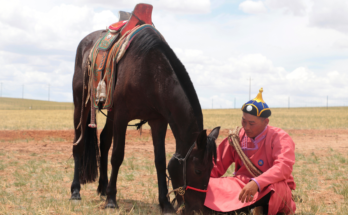The Humboldt penguin population has dramatically decreased in areas along the central coast of Chile, making them one of the most vulnerable of the world’s 18 penguin species and putting them at risk of extinction, experts warn.
Last year, scientists surveyed two islands off the central Chilean coast and detected 842 breeding pairs or active nests. This year they found just one breeding pair.
Paulina Arce, a veterinarian who specializes in penguins, says that penguin populations on all islands surveyed decreased or remained the same.
BABY PENGUINS DIVE OFF 50-FOOT CLIFF IN 1ST-OF-ITS-KIND FOOTAGE FROM NATIONAL GEOGRAPHIC
“This could lead to an even more drastic scenario, which could be the extinction of the species,” Arce said.
Humboldt penguins (Spheniscus humboldti) inhabit colonies along the Pacific coasts of Chile and Peru. They get their name because they bathe in the cold Humboldt Current. These flightless birds can weigh up to 11 pounds and measure up to 2 feet 3 inches tall when adults.
Diego Penaloza, president of the Safari Conservation Foundation, says the main threats to penguins in the wild are marine pollution, lack of pet supervision, and disturbance of nesting sites.
Additionally, avian flu, exacerbated by the El Nino weather phenomenon, has wreaked havoc on penguin populations and other wildlife. As a result, Humboldt penguin reproduction rates have plummeted to almost zero, according to Javiera Meza, head of Biodiversity Conservation at national forestry office Conaf.
“It was the avian flu plus the El Nino phenomenon that shifted all the food towards the southern zone, and therefore, in the entire northern Chile, reproduction dropped to almost zero levels, and on top of that, many penguins died,” Meza said. “It was like the perfect storm.”


